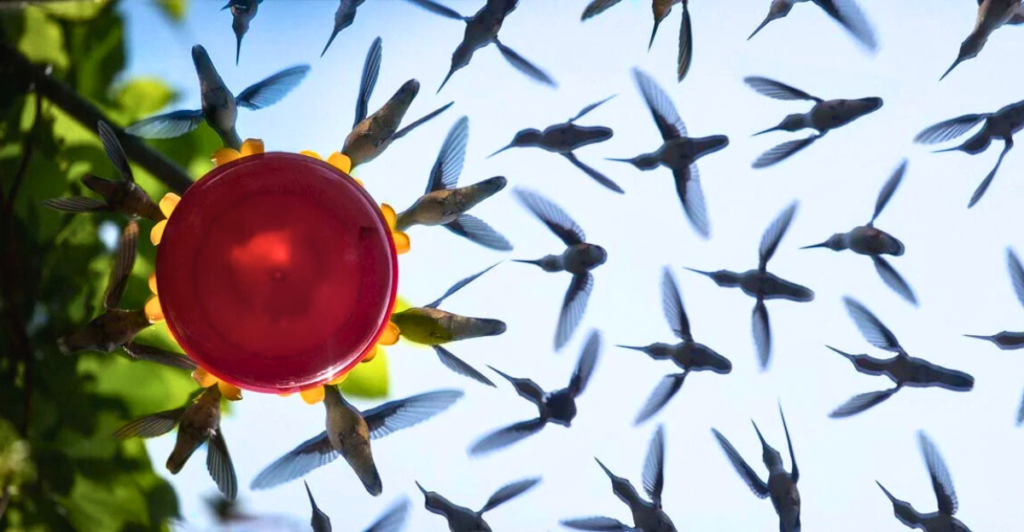
Hummingbirds are nature’s tiny marvels, known for their iridescent feathers and rapid wingbeats. Attracting them to your yard can bring joy and excitement to your outdoor space. One effective way to invite these delightful birds is by setting up a birdbath explicitly designed for their needs. This guide explores the best birdbath designs, placement tips, and maintenance strategies to make your yard a hummingbird haven. Let’s dive in!
Why Birdbaths Matter to Hummingbirds
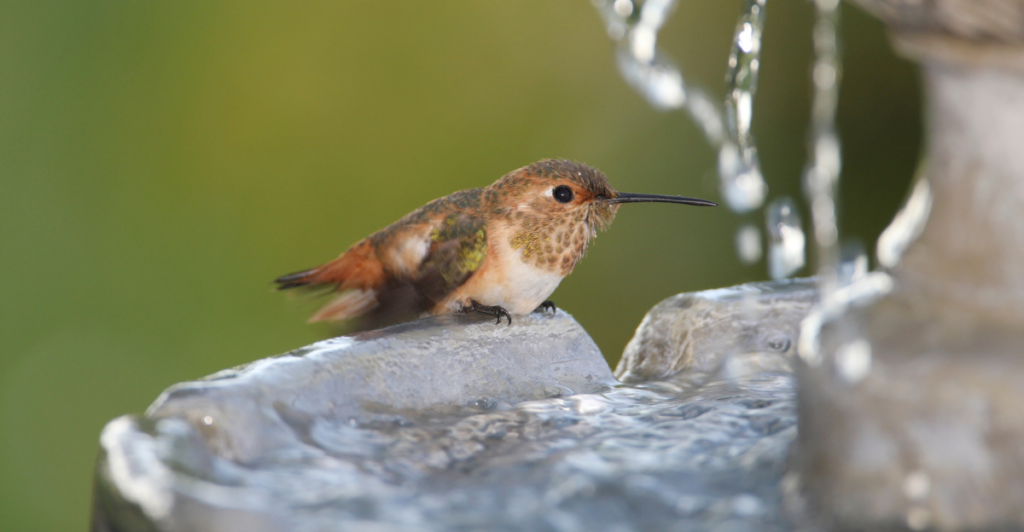
Hummingbirds are naturally drawn to water sources but prefer shallow, moving water. While they get hydration from nectar, they need water to clean their feathers and cool off. An adequately designed birdbath meets these needs and creates an inviting environment where hummingbirds feel safe. The sound and sparkle of water can attract these tiny visitors, making your yard a favorite stop on their daily routes.
Choosing the Right Depth
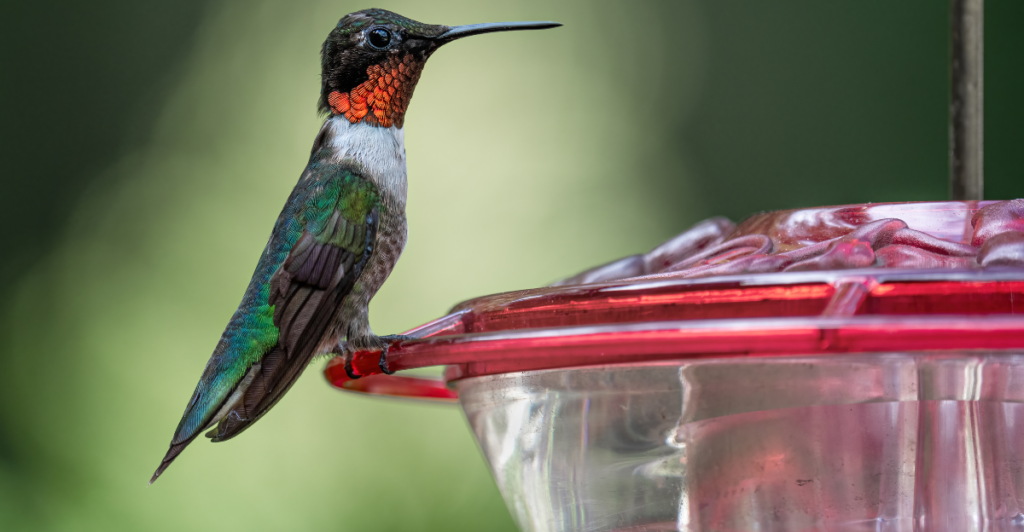
Hummingbirds are small creatures and prefer birdbaths with shallow depths, ideally no more than an inch of water. Too much water can be overwhelming and may deter them. Look for basins with a gently sloping edge, allowing the birds to perch and dip into the water comfortably. Providing the proper depth ensures that your birdbath is safe and inviting for these delicate birds.
Moving Water is a Must
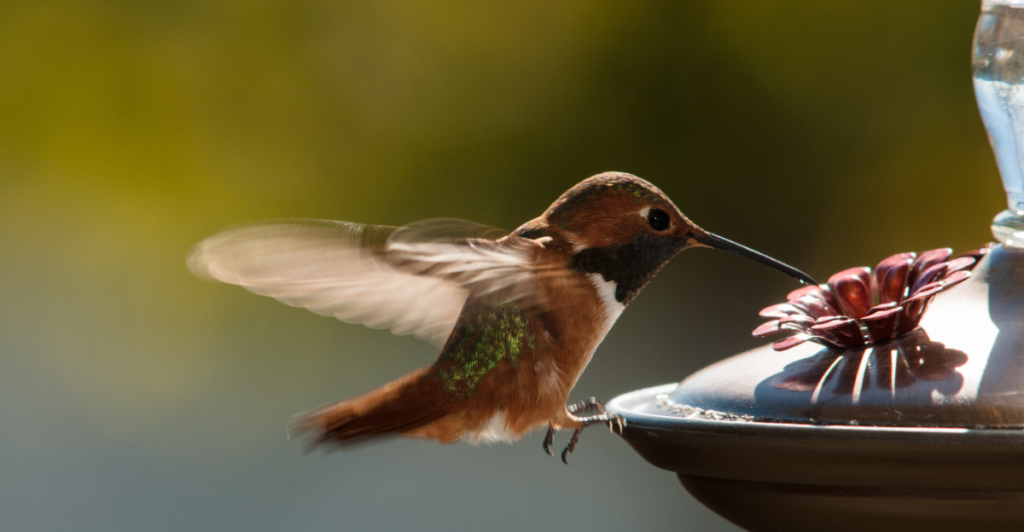
Hummingbirds are particularly attracted to moving water. Installing a small fountain, bubbler, or mister in your birdbath can create the dynamic motion they love. The sound of trickling water captures their attention and mimics natural streams and waterfalls. You can find affordable solar-powered options that are easy to set up and maintain, adding an extra layer of charm to your birdbath.
Picking the Perfect Spot
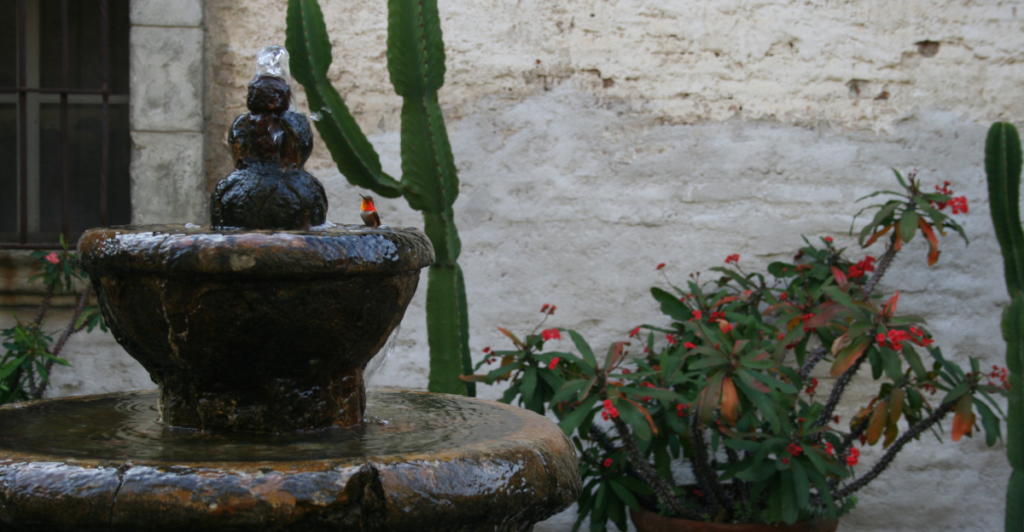
Location is key when setting up a birdbath for hummingbirds. Please place it in a sunny spot surrounded by flowers and shrubs they frequent. Ensure the area is free from heavy foot traffic and potential predators. Having perches nearby allows hummingbirds to rest and observe the surroundings before taking a dip. A well-placed birdbath blends seamlessly into their natural environment, making it irresistible.
Materials That Work Best
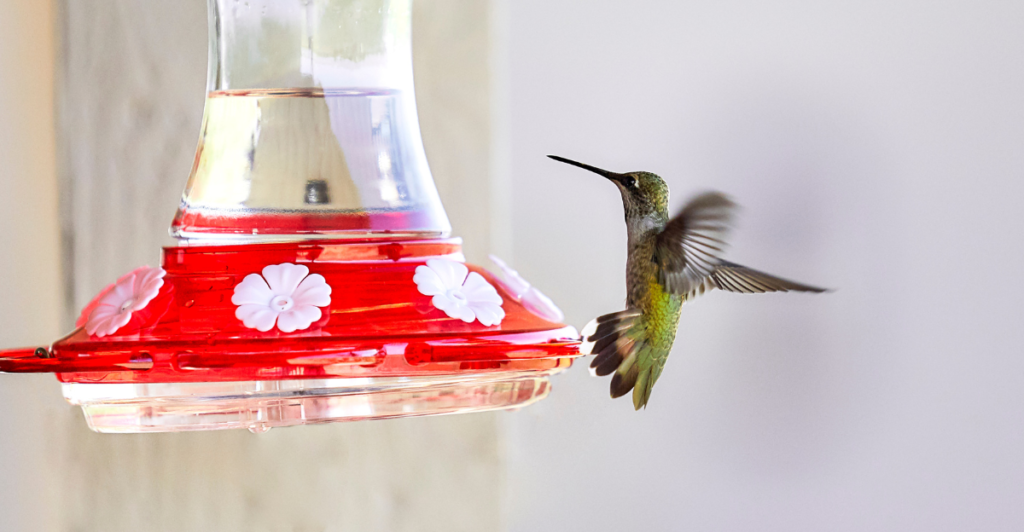
The material of your birdbath matters. Ceramic, metal, and stone options are popular, but lightweight plastic basins are also effective. Just ensure the surface isn’t slippery; textured designs are ideal. Avoid birdbaths with sharp edges or chemicals that could harm the birds. Selecting durable, easy-to-clean materials will keep your birdbath functional and safe for hummingbirds throughout the seasons.
Adding Native Plants Nearby
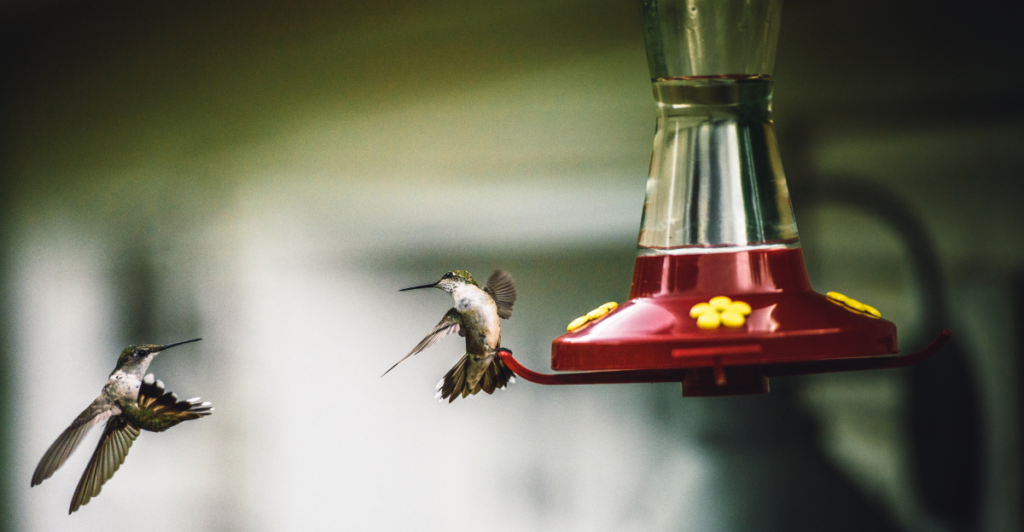
Enhance your birdbath’s appeal by surrounding it with native, nectar-rich plants. Flowers like trumpet vine, bee balm, and salvia attract hummingbirds and provide natural shelter and food sources. Incorporating vibrant, red-colored blooms near the birdbath can significantly increase the chances of visits, as hummingbirds are naturally drawn to bright colors.
Keeping the Water Fresh
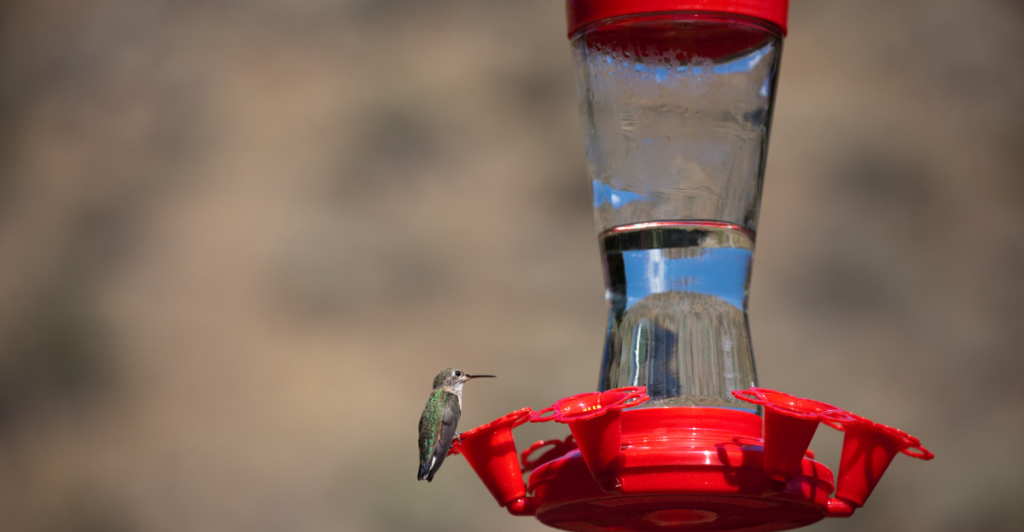
Clean, fresh water is essential for hummingbird health. Change the water daily to prevent algae growth and bacteria. Regularly scrub the basin with a mild, bird-safe cleaner to remove dirt and residue. Keeping your birdbath clean ensures it remains a healthy and attractive spot for hummingbirds.
Winterizing Your Birdbath
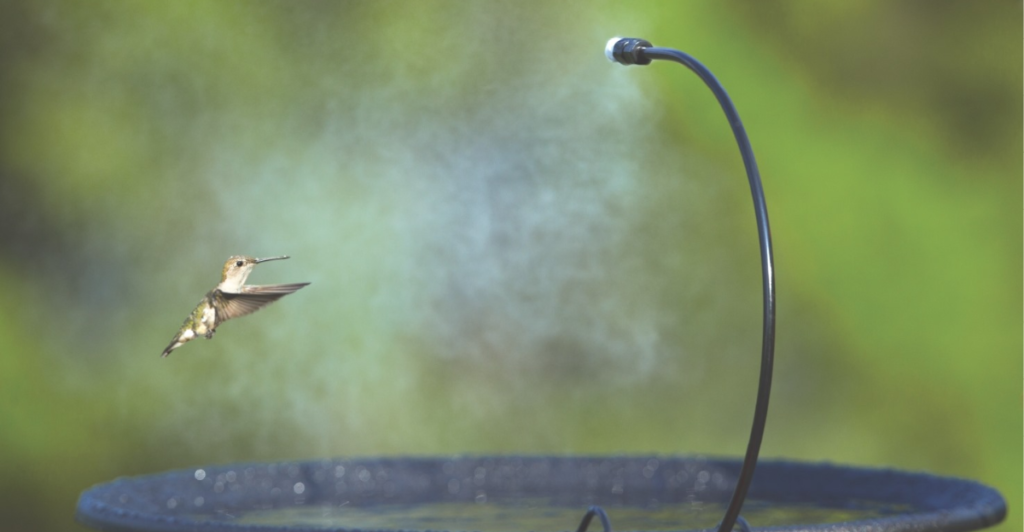
Hummingbirds migrate during colder months, but keeping the birdbath functional is crucial if you live in a warm climate or have year-round residents. Use a heated birdbath or add a bird-safe heater to prevent freezing. This small effort can be a lifeline for hummingbirds during winter, providing a consistent water source when natural options are scarce.
Incorporating Misters and Drippers
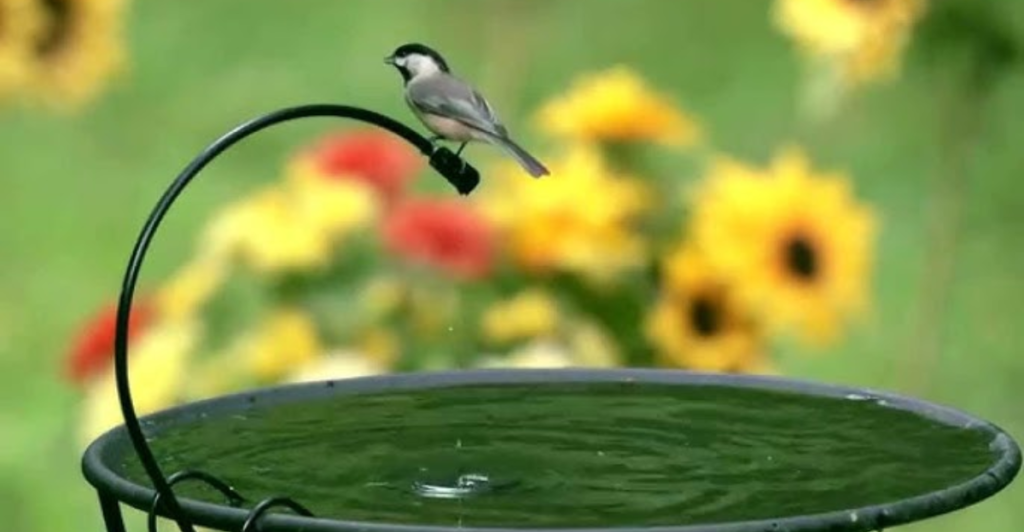
Misters and drippers are excellent additions to any hummingbird birdbath. They create fine water droplets that hummingbirds love to hover in and drink from. These devices are easy to install and use minimal water, making them eco-friendly. Misters also help keep the surrounding area cool and inviting for other wildlife in your yard.
Observing Without Disturbing
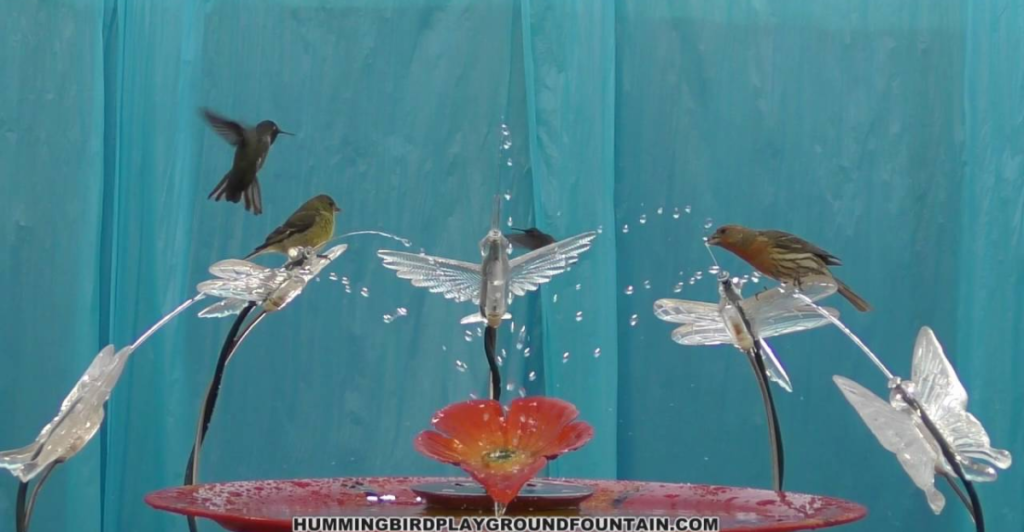
When enjoying your birdbath, maintain a respectful distance to avoid startling the hummingbirds. Use binoculars or set up a seating area far enough away for peaceful observation. Photographing these tiny wonders can be a delightful hobby, but ensure your presence doesn’t interrupt their natural behavior. A calm environment encourages frequent visits.
Troubleshooting Common Issues
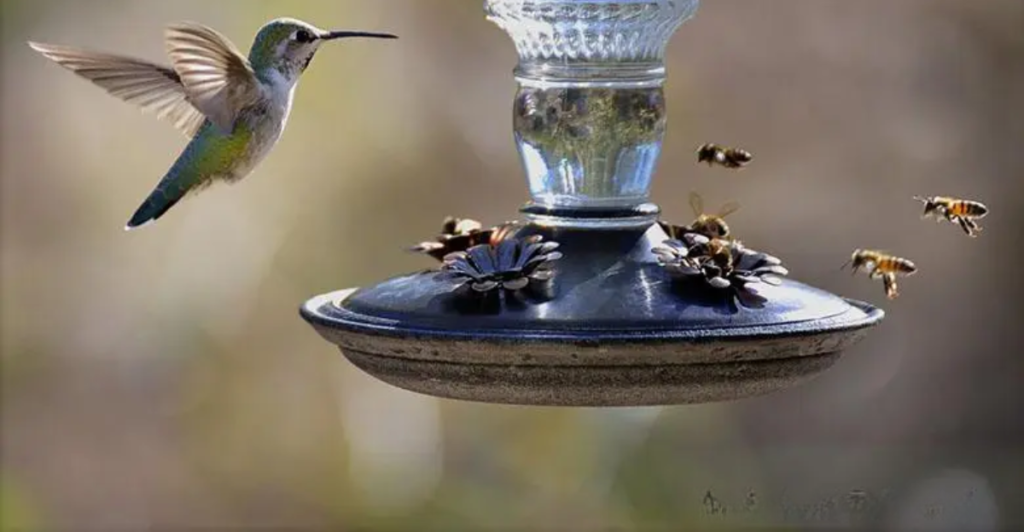
If your birdbath isn’t attracting hummingbirds, evaluate its placement, water movement, and cleanliness. Are there predators nearby, or is the area too exposed? Adjusting these factors can make a significant difference. Sometimes, patience is key, as hummingbirds may take time to discover new water sources. Keep refining your setup, and the results will come.
Creating a Hummingbird Oasis
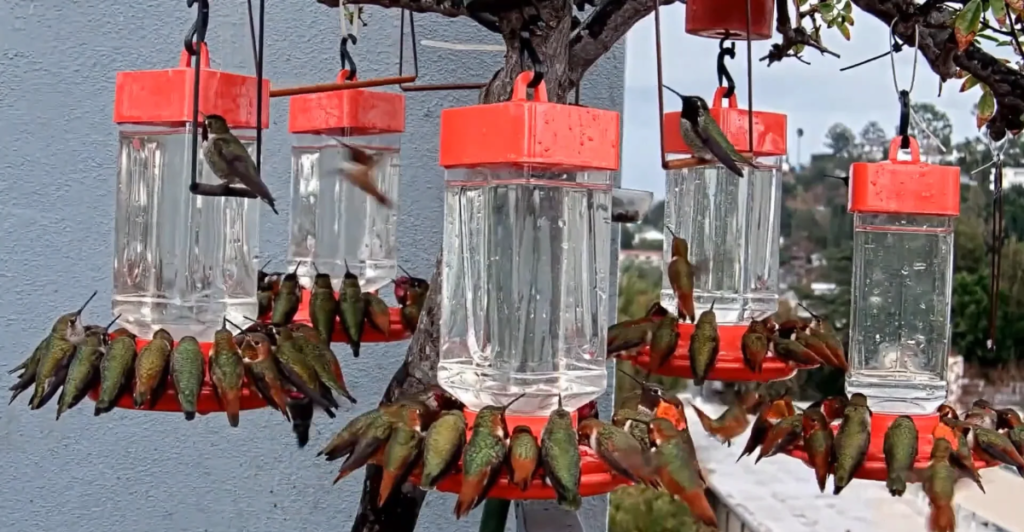
Your yard can become a hummingbird sanctuary with the right birdbath, strategic placement, and regular maintenance. These mesmerizing creatures bring life and beauty to any outdoor space, and their visits are enriching. By following these tips, you’ll support hummingbird health and enjoy the delightful spectacle they provide. Start your journey today and transform your yard into a hummingbird oasis!
Discover more of our trending stories and follow us to keep them appearing in your feed

11 Strongest Animals On Earth and Where to Find Them
12 Bold Animals That Have No Fear of Predators – Nature’s Underrated Fighters
Tips for Bringing an Outside Cat Inside Before the Winter Comes
Best 14 Dog Breeds to Terrify Intruders
Stay connected with us for more stories like this! Follow us to get the latest updates or hit the Follow button at the top of this article, and let us know what you think by leaving your feedback below. We’d love to hear from you!







